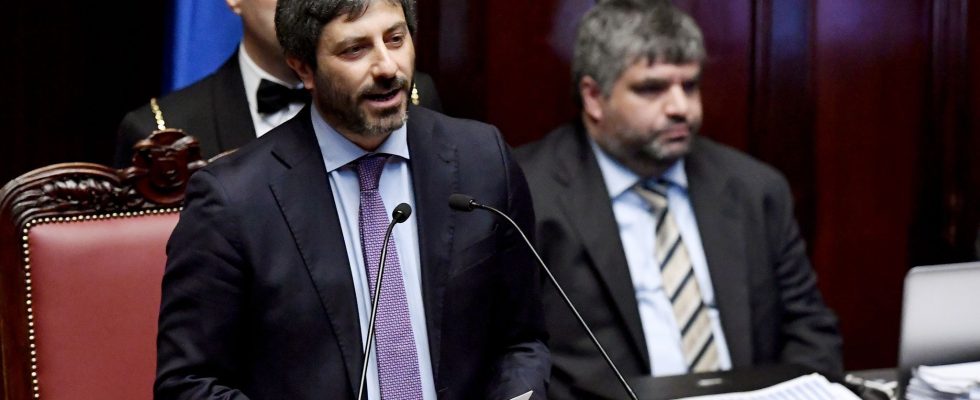Five years ago, Roberto Fico left the government under an unprecedented protest since the end of communism in 1989. Accused of having allowed the mafia to proliferate and after the revelations of his proximity to the sulphurous businessman Marian Kocner, identified as the mastermind of the murder of a 27-year-old journalist and his fiancée who was investigating the relations between the Prime Minister and the mafia. Roberto Fico largely lost the 2020 legislative elections. It will be different in 2023. The Smer-SD, led by the former prime minister, obtained 23.3% of the votes, ahead of the centrist Progressive Slovakia party, which won obtained 17%, after almost all the votes had been counted.
Roberto Fico, 59, is no stranger to political power. He has already been Prime Minister of Slovakia three times, this parliamentary republic of 5.5 million inhabitants, member of the European Union and NATO. Former member of the Communist Party and then of the Democratic Left Party (SDĽ) when it was founded in 1990. After being excluded from a ministerial post in 1998, he decided to create his own party, Smer, which ultimately absorbed the SDL.
Change of course on aid to Ukraine
All international attention is focused on this decisive election for this country’s support for Ukraine. Roberto Fico vowed to stop arms shipments to Ukrainians and called sanctions against Moscow “useless.” He also said he would review security arrangements allowing the United States to operate military bases in Slovakia. This stance on Ukraine marks a major shift for Slovakia, which has been one of kyiv’s main allies and among the first to promise fighter jets and tanks. The country has been one of the largest European donors to Ukraine, as a proportion of its GDP.
During the campaign, Roberto Fico even vowed that Slovakia would no longer send “a single ammunition” to Ukraine and called for better relations with Russia. Many analysts expect him to try to establish an anti-liberal axis within the European Union in collaboration with Hungarian Prime Minister Viktor Orban. Robert Fico himself echoes the Kremlin’s propaganda, declaring, for example, that “Nazis and Ukrainian fascists” are behind the war in Donbass. “War always begins in the West. And freedom and peace always come from the East” he was able to say during a campaign event at the end of August.
Fan of conspiracy theories
“Fico is now targeting extremist voter groups. It serves them in the same package with its hostility to NGOs, to LGBT people, to the United States, and its sympathy for Putin’s Russia,” explains Beata Balogová, editor-in-chief of Sme , the country’s main daily newspaper, Washington Post. He does not rule out governing with the support of the neofascists of Republika and the nationalist SNS party.
Fico’s politics combine far-left social policy with nationalism and conservative positions more associated with the radical right. He called adoption by same-sex couples a “perversion” and accused journalists lead an organized crime group. The election campaign was marked by particularly high rates of online disinformation, often targeting progressive Slovakia’s president, Michal Simecka, a vice president of the European Parliament.
A fragmented country
In mid-September, while the electoral campaign was in full swing, a scene struck everyone’s mind and highlighted the climate of tension at the end of the campaign: a former Prime Minister, Igor Matovič, was molested in his pick-up. up by a former Minister of the Interior, Robert Kaliňák, while he tried to disrupt the press conference with a megaphone of another former Prime Minister, Robert Fico. The latter also benefited from deep distrust and discontent with the previous government of Eduard Heger, whose coalition was plagued by internal struggles. In Slovakia, public trust in the government is only 18%, according to a Globsec think tank survey.
And court cases don’t help. Investigations into cronyism and corruption under Roberto Fico resulted in the incarceration of high-ranking officials. The former prime minister himself was accused last year of abuse of power and forming a criminal organization, but the Slovak Parliament voted against lifting his immunity. “He wants revenge,” said Pavol Hardos, a political scientist at Comenius University in Bratislava. Washington Post. “He is very clear about his desire to return and restore the old order.”
However, without an absolute majority, the leader of Smer-SD will need the help of small parties to form a majority coalition within the 150-seat Parliament. This new government replaces that of the center-right coalition in power since 2020, which has changed three times in three years.
